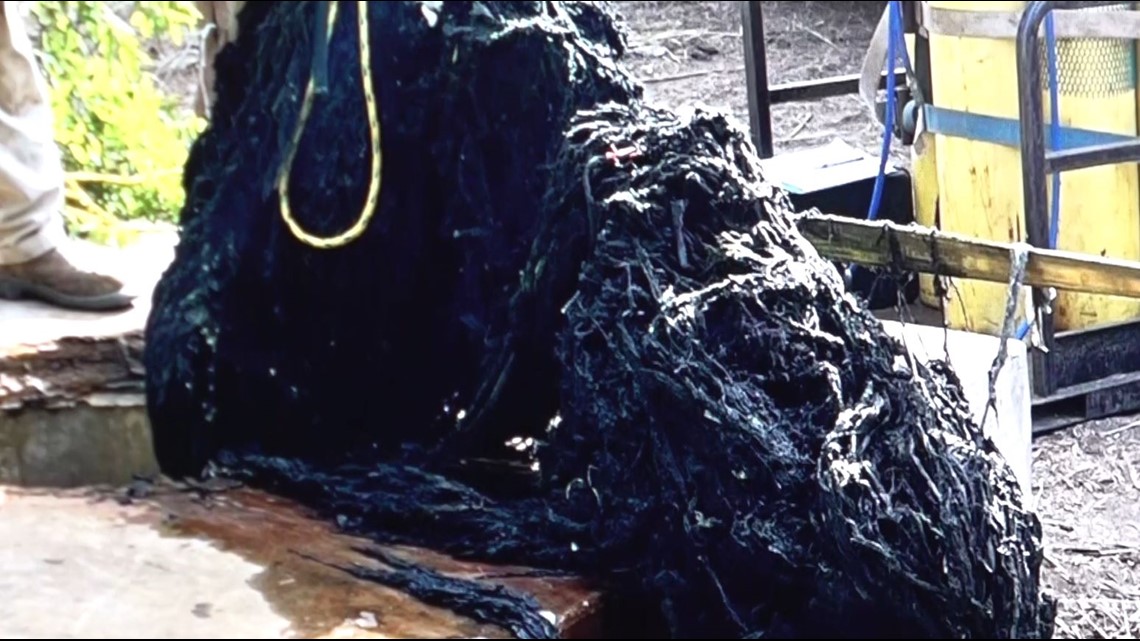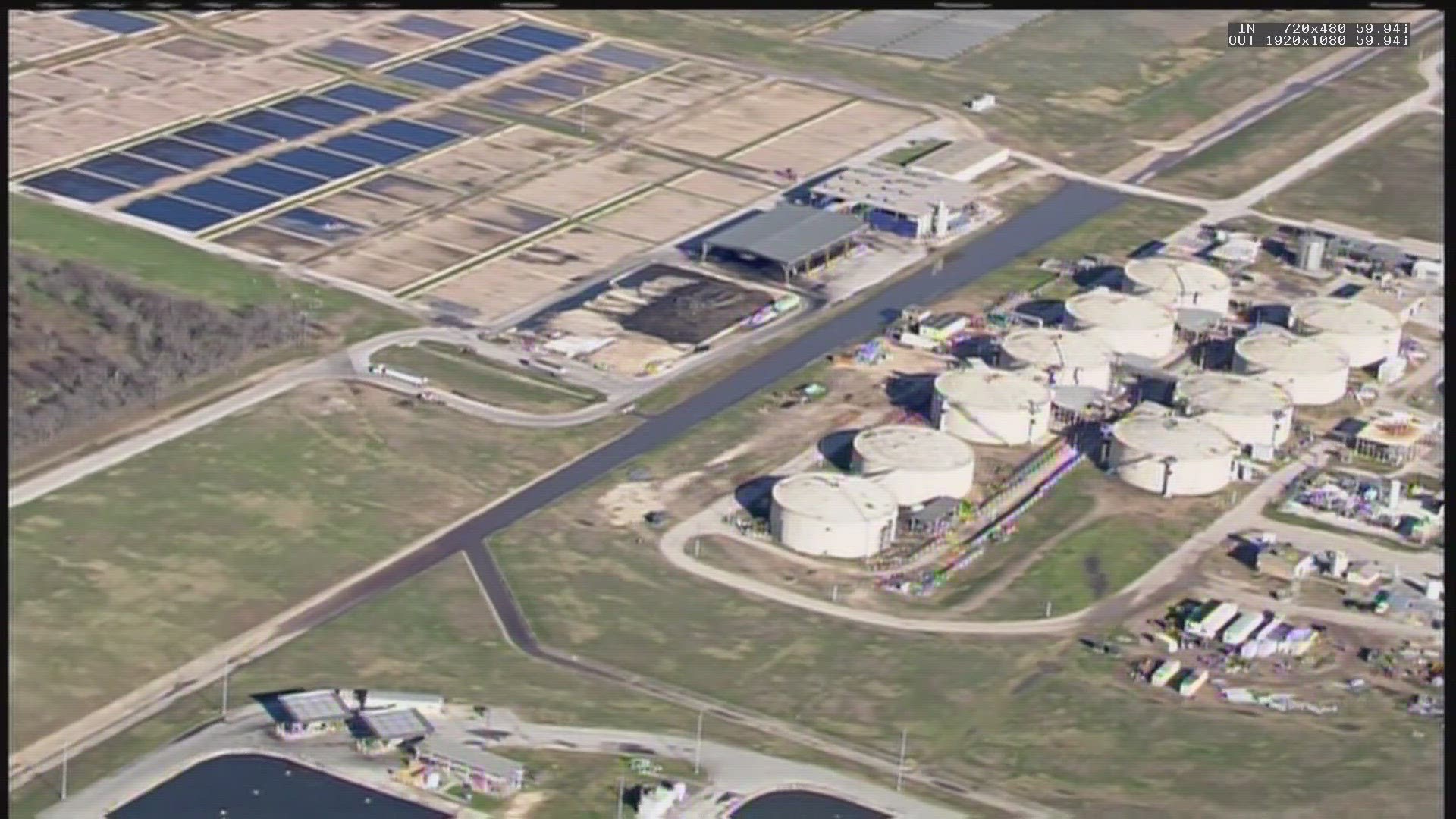SAN ANTONIO — Wastewater workers have been fighting to gain control of a spill at the region's main treatment facility after heavy rains caused a blockage, resulting in an overflow of more than 100,000 gallons of water.
It happened at the Steven M. Clouse Water Recycling Center on Valley Road in south Bexar County. The massive San Antonio Water System (SAWS) plant is near the confluence of the San Antonio and Medina rivers.
"After such a large rain after a large drought, we did see a huge ball of grease, debris, rags all balling up and essentially jamming one of our intake valves here," said Anne Hayden, a spokesperson for SAWS.
In spite of an aggressive effort to keep pipes clear and clean across their service zone, Hayden said the heavy rain flushed a massive amount of material downstream, where the blockage prevented further inflows to the plant.
"In recent days we've been seeing about 200 million gallons going through this plant, which is much larger than we normally see," she added.
Because the spill has been heavily diluted by the rush of storm water, Hayden said no long-term adverse impacts are expected downstream.
Still, getting rid of the mess is no easy job.
"We have heavy equipment that's going in and breaking it up and pulling it out of the system. You can imagine it's not a fun thing," Hayden said, adding so-called flushable wipes are one of the biggest contributors to the problem.
"There's a lot of packaging that says 'flushable.' Flushable means it will go down your toilet. It doesn't mean that it's going to dissolve, so it's very different than toilet paper, which comes apart. So all of those 'flushable' wipes bind up with the grease and the sticks and all the things in the sewer system and they really almost form concrete. It's very hard to break it apart."


Hayden said SAWS is not alone in the fight; utilities across the world are seeing similar issues.
"We try to stop it and we've spent over $1.2 billion in the last 12 years in improvements to the city's sewage infrastructure," Hayden said.
Preventing problems, Hayden said, means keeping the three Ps in mind before every flush of a toilet.
"It's paper, toilet paper, poo and pee," Hayden said, adding that they are constantly straining other contaminants out of the waste stream.
Naming the objects they see most often, Hayden cited dental floss, chip bags, hygiene products and condoms, none of which should be flushed.
While the cleanup continues, Hayden said people should avoid swimming in downstream affected areas and private well owners might want to have their well water tested or inspected. Click here for more tips from SAWS.
>MORE LOCAL STORIES:
>TRENDING ON KENS 5 YOUTUBE:

